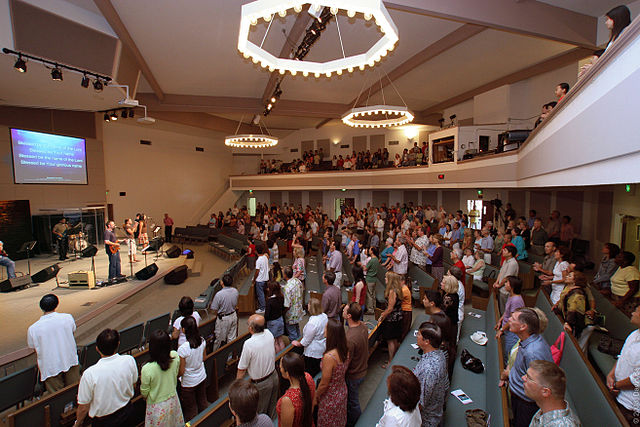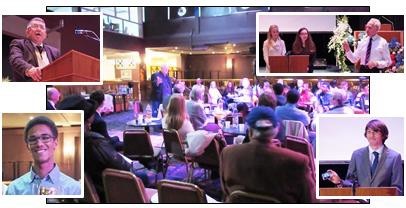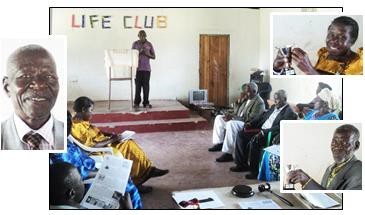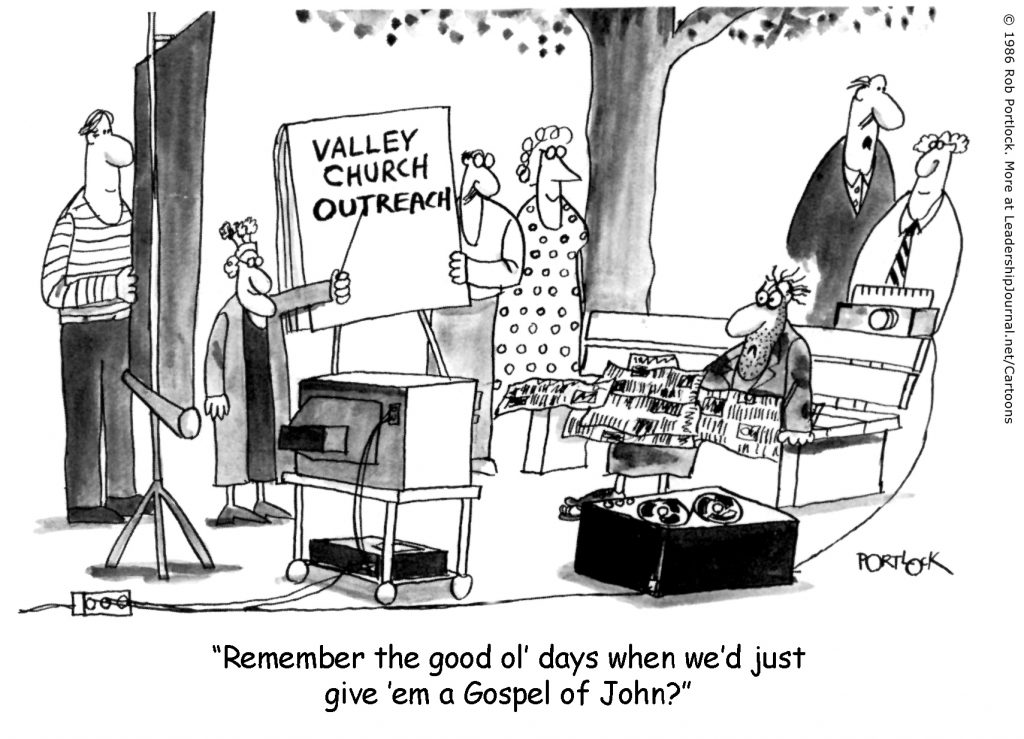Dear Brothers and Sisters,

Tammy and I have shared many things with a couple that lives near us, including a journey of theological reformation. They’ve visited our church and, at their invitation, we recently visited theirs. The husband told me he wanted me to meet his pastor because their church recently left a Pentecostal denomination. In a way similar to ours, their faith journey has taken them out of legalism into grace.
We very much enjoyed their worship service—friendly fellowship, an inspiring sermon and an excellent praise band led by a worship leader with a particularly winsome personality. We did, however, encounter a problem—the worship music was painfully loud. I’m not joking when I say that the call to worship included an offer of earplugs. But even with earplugs in place, Tammy had to leave for the lobby until the music was over—and she was not alone.
Though some worship leaders believe very loud music encourages worship, several studies have shown that the opposite is often the case. Drowning out the voices in the congregation tends to inhibit, rather than encourage participation (and don’t forget the congregation’s auditory health!).

Though music in worship yields many benefits (I address several of them below), it also presents common problems. In addition to that of volume, there’s the problem of singing songs the congregation has never heard. On our visit to our neighbor’s church, while Tammy was in the lobby, I was in the sanctuary trying to sing songs I mostly did not know. Though the lyrics were projected onto a screen, I was not the only person in the audience who wasn’t singing. I enjoy learning new songs (and there are over 300,000 of them available at the click of your computer keyboard!), but frequently singing new (unfamiliar) songs can be a “worship killer.”
For most of us, singing aloud in worship involves some difficulty. But that difficulty is magnified when one doesn’t know the lyrics or the melody. I’m not saying it’s wrong to introduce new songs—Scripture admonishes us to “sing to the Lord a new song” (Psalm 96:1). But make new songs the exception, not the norm. Also, the songs chosen should be relatively easy for the congregation to sing—remember that most people are not experienced vocalists!
Another typical problem is the tendency for the worship team to slip into “performance mode” instead of focusing on facilitating the congregation’s worship. Mike Harland who directs LifeWay Worship made this comment: “When you turn the lights off and you have theatrical lighting on stage, you’re suggesting to the congregation they are here to watch something rather than participate.” All elements of worship, singing included, should facilitate the response of the people to who God is and what he has done, is doing, and will yet do for us. In that regard, please be sure that the lyrics to the songs selected are theologically sound. Worship teams should weed out songs that, though they may be popular, are not faithful to our Trinitarian faith.

Now that we’ve looked at some of the problems to avoid, let’s now look at some of the many benefits that come with the proper use of music in worship. A creation of God, music is a powerful dynamic that seems to be “hard-wired” into all of creation. Scientists have also discovered that music (depending on its quality) either stimulates or retards growth in plants. They’ve also found that music stimulates more parts of the human brain than anything else. Note this related comment from violinist Daniel Roumain:
You know when someone says that a piece of music “touched me” or “moved me,” it’s very literal. The sound of my voice enters your ear canal and it’s moving your eardrum. That’s a very intimate act. I am very literally touching you, and when you speak to me, you are literally touching me.
By God’s design, singing music together is a vital part of worship. We see this in God’s use of corporate singing at the time of Israel’s founding. Notice this Old Testament passage where God speaks to Moses:
Write down this song and teach it to the Israelites and have them sing it, so that it may be a witness for me against them. When I have brought them into the land flowing with milk and honey, the land I promised on oath to their ancestors, and when they eat their fill and thrive, they will turn to other gods and worship them, rejecting me and breaking my covenant. And when many disasters and calamities come on them, this song will testify against them, because it will not be forgotten by their descendants. I know what they are disposed to do, even before I bring them into the land I promised them on oath. (Deuteronomy 31:19-21)
God wanted Israel to sing a particular song that would serve the immediate generation as a criterion for their judgment (forewarning them of the results of their unfaithfulness), and then for future generations of a reminder of the mistakes their ancestors had made. Worship songs thus bear powerful, transforming messages. In our day they serve to build up the church, helping people turn their hearts to God and learn spiritual truths that encourage them to live the redeemed life. The melodies of the songs make it easier to remember the lyrics, which remind us of God’s love, his faithfulness, and his commitment to us. Paul admonishes us to communicate these vital truths to one another by singing “psalms, hymns and spiritual songs” (Ephesians 5:19). In our corporate worship we not only sing praises to God, we communicate, in song, with one another concerning God.
In addition to these benefits related to singing in worship, let’s recall one that the prophet Zephaniah mentions in a prophecy concerning the Day of the Lord:
The Lord your God is in your midst, a mighty one who will save; he will rejoice over you with gladness; he will quiet you by his love; he will exult over you with loud singing. (Zephaniah 3:17 ESV)
Listen carefully—do you hear our Lord singing? Let’s join in together!
Worshipping our Lord with you in song,
Joseph Tkach












 Dave, who grew up in Illinois, begin part-time employment with GCI in 1969 while a student at Ambassador College in Big Sandy, TX. Following graduation in 1973, Dave operated his own window cleaning company for several years. Ordained an elder in 1985, Dave was hired by GCI in 1988 to begin working full-time in employed ministry. He started as assistant pastor of the Charleston, SC congregation, then associate pastor in Savannah, GA, then senior pastor in Pasco and Quincy, WA. In 1996 he was transferred to Indianapolis, IN to pastor four congregations. He continued in that pastoral ministry until his recent retirement.
Dave, who grew up in Illinois, begin part-time employment with GCI in 1969 while a student at Ambassador College in Big Sandy, TX. Following graduation in 1973, Dave operated his own window cleaning company for several years. Ordained an elder in 1985, Dave was hired by GCI in 1988 to begin working full-time in employed ministry. He started as assistant pastor of the Charleston, SC congregation, then associate pastor in Savannah, GA, then senior pastor in Pasco and Quincy, WA. In 1996 he was transferred to Indianapolis, IN to pastor four congregations. He continued in that pastoral ministry until his recent retirement.